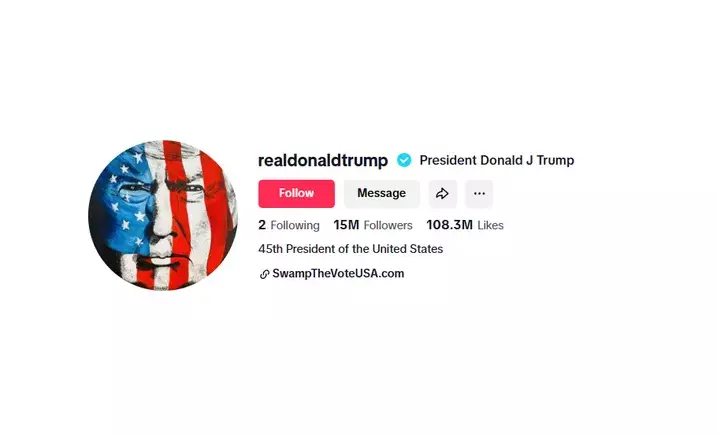The controversy surrounding TikTok’s status in the United States has captivated both lawmakers and the public alike. With a complex web of legal rulings, political maneuvering, and national security concerns, the app finds itself navigating a precarious landscape. As of now, TikTok continues to operate in the U.S. despite a Senate-backed bill that sought to limit its presence due to foreign ownership by the Beijing-based company ByteDance. An examination of this situation reveals how the dynamics of power, policy, and public sentiment are intertwined.
Recently, the U.S. government took significant steps towards enforcing a ban on TikTok as part of the “Protecting Americans from Foreign Adversary Controlled Applications Act.” The bipartisan vote of 431 to 83 in Congress points to a strong consensus regarding security concerns associated with the app. Yet, the outgoing Biden Administration announced a non-enforcement approach, leaving the door open for the incoming Trump Administration to grapple with the implications of enforcing the law. This political upheaval has created a two-fold dilemma: the app’s operational status amidst legal ambiguity and the future of its governance in American digital spaces.
This impending ban was to go into effect immediately, raising concerns about the legality of TikTok’s ongoing operations. While the social media platform is available to users, its status hangs by a thread. President Trump’s controversial extension, allowing a 75-day window for the app to negotiate its legitimacy, may lack legal grounding. Experts argue that such a retrospective adjustment does little to quell the imminent risks associated with continued operations post-enactment of the Senate’s decision.
The Role of Big Tech
As TikTok wrestles with its compliance with U.S. laws, the role of major tech players like Apple and Google is equally significant. The application was conspicuously absent from their respective app stores, largely due to fears of incurring substantial penalties under the new law. While President Trump has assured companies that they would not be punished for supporting TikTok, the hesitancy of these tech giants illustrates their caution when facing potential governmental backlash. Such actions underscore the precarious balancing act that these corporations must perform in navigating the unpredictable relationship between national security and their business interests.
Conversely, Oracle’s availability of back-end support for TikTok presents a noteworthy development. By accepting Trump’s reassurances, Oracle has thrust itself into a politically charged scenario, potentially setting itself up for future scrutiny. Will the firm be shielded from significant penalties, or will the legal complexities create new challenges? Much will depend on the evolution of TikTok’s status, as well as the apportionment of responsibilities and liabilities among corporate entities involved.
At the heart of the legislative actions and executive orders related to TikTok is the nebulous matter of national security. Briefings provided to lawmakers, whose details remain classified, have reportedly played a crucial role in informing their votes. Such tightly-held information raises questions regarding public transparency and the extent to which these concerns have informed the decision-making process. As Trump assumes control, his perspective on these issues may evolve based on classified insights that could alter his approach toward TikTok.
The bipartisan agreement fundamentally reflects widespread worries about the potential misuse of user data and the implications of foreign control over a widely-used social media platform. Despite Trump’s public posturing toward a financial arrangement, the lingering national security apprehensions cannot be easily dismissed and will continue to influence the political narrative.
The Road Ahead
As it stands, TikTok finds itself at a crossroads, with its operational viability clouded by legal and political uncertainty. The platform’s future in the U.S. hinges upon the results of ongoing negotiations, the reception from major tech partners, and the evolving legal landscape. As President Trump considers his options—potentially negotiating a stake in the company—the stakes are high, not only for TikTok but also for American users who have integrated it into their daily lives.
Ultimately, how this intricate scenario unfolds will depend on the interplay of legal, technological, and political factors. The public, policymakers, and corporations alike will be vigilant in watching how TikTok navigates this tumultuous terrain, aware that the decisions made in the coming days will have lasting implications for digital governance and international relations. In a world where technology rapidly evolves and societal values shift, the saga of TikTok is a striking example of the complex intersection between innovation, law, and governance.


Leave a Reply